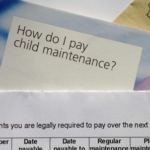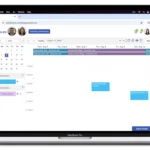When co-parenting, effective communication extends beyond discussions between ex-spouses. Engaging with your children’s teachers cooperatively can significantly contribute to their academic success and overall well-being. As a Family Mediator experienced in navigating the complexities of co-parenting dynamics, I understand the importance of fostering positive communication channels between co-parents and educators. Here’s how co-parents can collaboratively engage with their children’s teachers for the betterment of their son’s or daughter’s educational journey:
- Establish Open Lines of Communication: Co-parents should prioritize establishing open lines of communication with each other and with their children’s teachers. Whether through email, phone calls, or in-person meetings, maintaining transparency and accessibility fosters a sense of collaboration and support.
- Coordinate Information Sharing: Consistency is key when it comes to sharing information with teachers. Co-parents should coordinate efforts to ensure teachers receive relevant updates regarding their children’s academic progress, extracurricular activities and any significant developments within the family dynamic.
- Respect Boundaries and Roles: Recognize and respect the roles of teachers within the educational environment. While co-parents may have differing parenting styles and approaches, maintaining a unified front in supporting the teacher’s authority fosters a cohesive learning environment for your child.
- Prioritize Your Child’s Needs: Keeping your child’s best interests at the forefront of all interactions is paramount. Co-parents should approach discussions with teachers with a shared goal of supporting their child’s academic and emotional growth. This may involve collaboratively addressing any challenges or concerns that arise and working together to implement solutions is key.
- Attend Parent-Teacher Meetings Together: Whenever possible, attending parent-teacher meetings or conferences together can demonstrate a united front and allow both co-parents to actively participate in discussions about their child’s progress and development. This also provides an opportunity for teachers to address any concerns or observations directly with both parents present.
- Communicate Professionally and Constructively: Effective communication hinges on professionalism and constructive dialogue. Co-parents should refrain from engaging in conflicts or disagreements in front of teachers or involving them in personal disputes. Instead, approach discussions with a solutions-oriented mindset and a willingness to collaborate for the benefit of the child.
- Utilize Technology and Shared Platforms: In today’s digital age, leveraging technology can streamline communication between co-parents and teachers. Shared online platforms or apps designed for parent-teacher communication can facilitate real-time updates, homework assignments and progress reports, ensuring both co-parents are informed and involved in their child’s education.
- Advocate for Accessibility and Inclusivity: Co-parents should advocate for inclusivity and accessibility within the educational setting, particularly in cases of joint custody or blended families. Ensuring both co-parents receive equal access to information, school events and opportunities for involvement reinforces a sense of equity and partnership in their child’s education.
By embracing a collaborative approach to engaging with their children’s teachers, co-parents can cultivate a supportive and nurturing educational environment that empowers their child to thrive academically and emotionally. As a Family Mediator committed to promoting positive co-parenting dynamics, I encourage co-parents to prioritize effective communication and cooperation for the benefit of their children’s educational journey.
























